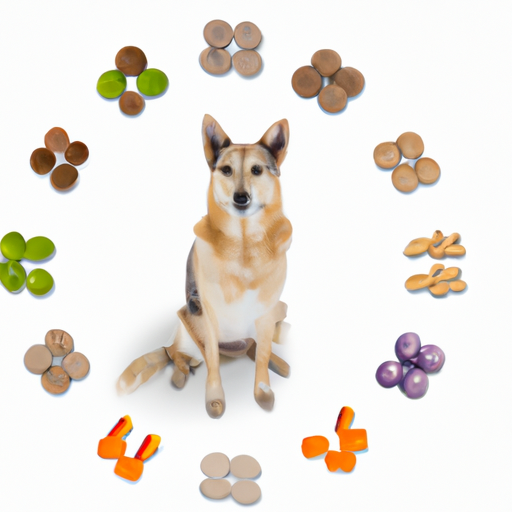Fleas are a common nuisance for our beloved four-legged friends. These tiny external parasites can cause severe discomfort and health issues if left untreated. The good news is that there are various flea medications available on the market to protect your dog from these critters. But the question is, what is the best flea medication for dogs? To answer this, we need to explore several factors, including efficacy, safety, and the nature of the infestation.
Key Takeaways:
- The best flea medication for your dog depends on multiple factors, including the dog’s size, age, health, and lifestyle.
- Topical treatments, oral medications, and flea collars are the most common types of flea medications.
- It’s crucial to consult with a veterinarian before starting any flea medication regimen for your pet.
Table of Contents:
- Types of Flea Medications
- Topical Treatments
- Oral Medications
- Flea Collars
- Choosing the Best Flea Medication
- Frequently Asked Questions
Types of Flea Medications
There are three primary types of flea medications available: topical treatments, oral medications, and flea collars. Each has its own advantages and drawbacks, which we’ll delve into in the sections below.
Topical Treatments
Topical treatments, also known as spot-on medications, are applied directly to your dog’s skin, usually at the back of the neck. These treatments are designed to kill fleas on contact before they have a chance to lay eggs, providing a proactive solution to flea infestations.
One of the primary benefits of topical treatments is their ease of application. They also offer broad-spectrum protection, often working against both fleas and ticks.
An example of a popular topical treatment is Frontline Plus. This product not only kills adult fleas and ticks but also eliminates flea eggs and larvae, disrupting the life cycle of the parasites. However, as with any medication, it’s essential to read the instructions and precautions carefully before use.
Oral Medications
Oral flea medications come in the form of tablets or chews that your dog can consume. These medications work by entering your dog’s bloodstream; when a flea bites your dog, it ingests the medicine and dies.
One advantage of oral medications is their fast-acting nature. Some products can kill fleas within 30 minutes of ingestion. Notable oral flea medications include Nexgard and Comfortis, both of which are prescription-only and kill adult fleas.
However, oral medications may not be suitable for dogs with certain health conditions or those that are fussy eaters. Always consult your veterinarian to determine if oral medication is the best choice for your dog.
Flea Collars
Flea collars are a convenient and long-lasting solution for flea control. These collars release active ingredients that spread over your dog’s skin and coat, killing or repelling fleas.
One of the most recommended flea collars is the Seresto collar, which provides eight months of continuous protection against fleas and ticks. While flea collars can be highly effective, they may not be the best choice for dogs with skin sensitivities or those who are frequently in water.
Choosing the Best Flea Medication
The best flea medication for your dog depends on several factors, such as:
- Size and Age of Your Dog: Always choose a product suitable for your dog’s weight and age range. Products designed for large breeds may be too potent for small dogs, and some medications are not suitable for puppies.
- Lifestyle: If your dog spends a lot of time outdoors or swimming, a waterproof spot-on treatment or oral medication might be best.
- Health Status: For dogs with existing health conditions, it’s crucial to consult with a vet to avoid potential drug interactions or side effects.
If you need more guidance, One Top Dog provides several resources on dog health and wellness, including articles about flea and tick prevention and dog health care tips.
Frequently Asked Questions
Q: Can I use multiple flea treatments at once?
A: Using multiple flea treatments simultaneously can lead to overdosing or adverse reactions. Always consult with a veterinarian before combining treatments.
Q: Are natural flea remedies effective?
A: Natural remedies can help deter fleas, but they may not be as effective as medical treatments in eliminating an infestation. Always consult with a vet for the best course of action.
Q: How often should I apply flea medication?
A: The frequency of application depends on the specific product. Some treatments are monthly, while others may last for several months. Always follow the product’s instructions.
In conclusion, the best flea medication for dogs depends on the individual dog’s needs and lifestyle. It’s always best to consult with a veterinarian before starting any new medication regimen to ensure it’s the right fit for your furry friend. Remember, preventing fleas starts with keeping your dog healthy and maintaining a clean environment.



